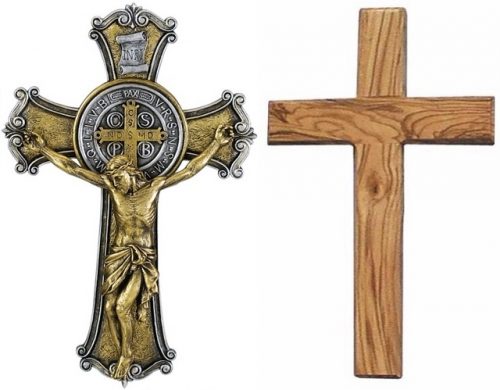Catholics and Christians are two different religions. Their beliefs, rituals, and practices are quite different from each other. In fact, they even have different names. We will discuss the differences between Catholics and Christians so that you can tell them apart even if you don’t know much about religion.
The name of the religion called “Christianity” was first coined by Saint Paul in his letter to the Corinthians (I Corinthians 1:2-3), but it is not officially recognized by the Catholic Church.
In the early centuries of Christianity, the name “Catholic” was used by a group of Christians who believed in the apostolic succession. They were also called “Paulicians” or “Cathari.”
Summary Table
| Catholics | Christians |
| Have no priests or bishops | Have ministers (e.g., pastors) and ministers of each congregation (e.g., elders) |
| Have one central authority | Have many congregations and congregations within a congregation |
| Are composed of many congregations and congregations within a congregatio | Are composed of one large organization (e.g., the Holy Roman Catholic Church) |
Definitions:

In the last few years, we have been seeing a lot of such statements and comments coming out from the church. Many people think that Catholics are Christians and vice versa.
This is wrong. There is a significant difference between a Christian and a Catholic. A Christian is one who believes in Jesus Christ as the only son of God and his only savior. He also believes that there will be no other savior to come after him. The one who had died for our sins and rose again on the third day.
A Catholic is not a Christian. Even though Catholics believe that Jesus Christ is the savior of all mankind, they do not believe in him as God or the Son of God. They believe that he was just a man who came to earth and did miracles for humans. Also, they do not believe that Mary was the mother of Jesus Christ. The Catholic faith is also very much different from the Jewish faith. A Catholic believes in many priests and bishops instead of one prophet or priest.
But what are the differences between Catholics and Christians? Are they similar or are they different? Can you describe the differences between them based on their beliefs, rituals, and practices? Do they have the same personality traits as well? This article will discuss the differences of Catholics and Christians to help you tell them apart even if you don’t know much about religion.
What is a Catholic?
A Catholic is a person who belongs to the Catholic Church, which is an international church with over one billion members worldwide.
Although the church’s official title is “The Holy, Catholic, Apostolic and Roman Church,” people often refer to it as “the Roman Catholic Church.” The term “Catholic” means “universal” or “universalist.” A universalist believes that the salvation of all people must be made possible through Christ and his teachings.
What is a Christian?
A Christian is a member of the Christian Church, which also has over one billion members worldwide. It is very similar to the Catholic church, differing only in that it teaches that Christ is the head of the church, rather than being subordinate to him. The word “Christian,” however, originally meant “little” and is used as an adjective (e.g., “Christian morality” or “Christian values”) to refer to those who follow Jesus’ teachings.
What are the differences between Catholics and Christians?
The Catholic Church is an international church. It has members in over one hundred countries. It is the largest Christian religious organization in the world, and it has many distinct qualities.
For one thing, there are no priests or bishops in the Church. Priests are men who are ordained to serve as leaders of a parish by a bishop. Bishops are men who lead dioceses (ecclesiastical districts). The diocese is responsible for administering and teaching within its specific boundaries.
The Christian Church, on the other hand, is a local church. It has members in many different countries and regions. In fact, it is the only Christian denomination that has members in every country on earth. Whereas the Catholic Church claims authority over all of humanity, Christians believe that dominion is given to Jesus Christ alone. The term “Christian” means “little (or child)”. This is because children are taught about Jesus by their parents or godparents at a very early age and are baptized (or “christened”) as Christians later on.
The Catholic Church was originally an international organization that had a hierarchical structure, but it has been changed considerably over the centuries. Its teaching authority has declined and today it is no longer even claimed to be the “one true church.” It is not composed of one large organization but rather of many smaller ones. The Catholic Church considers itself to be part of a whole, with all the members working together as one body. There are several different orders and congregations within the Church, each having its own ministry. While priests and bishops are the leaders, the laity (members who are not priests or bishops) serve as ministers.
The Christian Church is a local church with an elective system for its leadership. Its teaching authority has declined over time, but it remains central to the faith of many believers. It is also composed of many congregations and congregations within a congregation. Each congregation has its own minister or ministering body that oversees things on a day-to-day basis. The ministry of a congregation is led by a pastor, who is assisted by members of the congregation.






